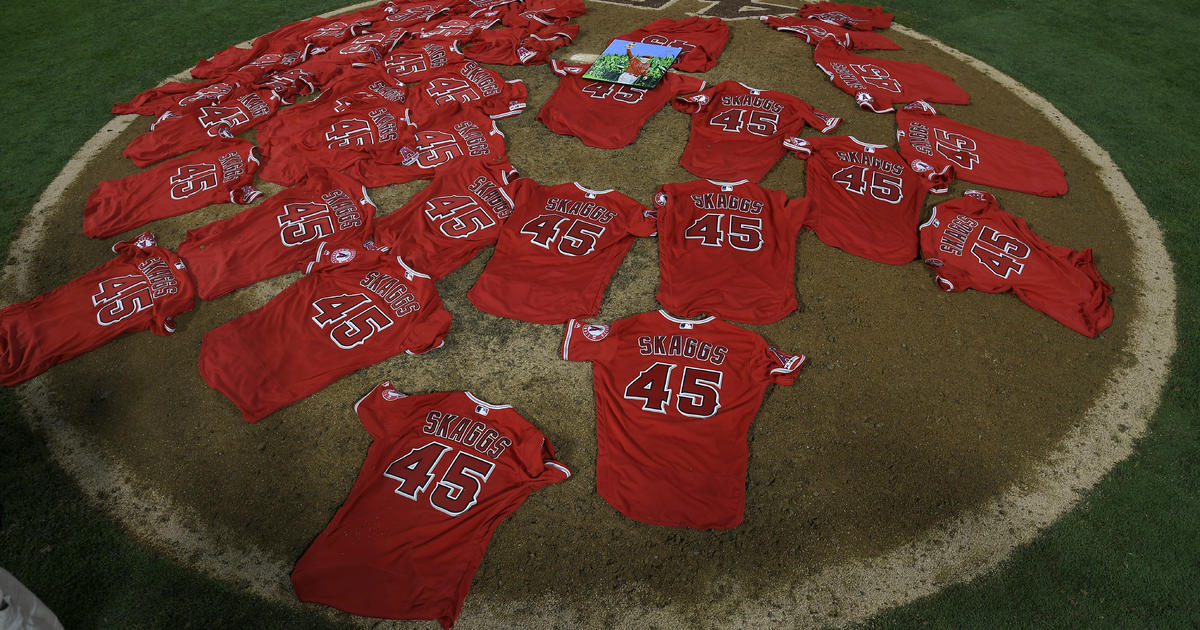A former Los Angeles Angels employee has been charged in connection with the fatal 2019 overdose of pitcher Tyler Skaggs, the Department of Justice announced Friday. Skaggs, who was 27, was found dead in his hotel room in Southlake, Texas.
Eric Kay, the team’s former communications director, was charged with conspiracy to distribute a mixture containing detectable amounts of fentanyl, the department said in a news release. Kay, 45, was arrested in Fort Worth and could face up to 20 years in prison if he’s convicted.
The charges came after the Tarrant County Medical Examiner’s office determined that Skaggs had a mixture of ethanol, fentanyl and oxycodone in his system at the time of his death, according to the criminal complaint. When searching his hotel room, investigators found multiple pills, including a single blue pill with the markings “M/30.”
An analysis showed that the pill had been laced with fentanyl, the complaint said, adding that it was later determined that Skaggs would not have died if he had not ingested the fentanyl.
The DEA agent who wrote the criminal complaint said that the M/30 pill “had the appearance of a legitimate prescription 30-milligram oxycodone tablet,” and said that the presence of fentanyl in the pill meant it was counterfeit.
Tyler Skaggs at Angel Stadium on August 11, 2018, in Anaheim.
Victor Decolongon / Getty
Kay originally claimed that he didn’t know Skaggs used drugs other than marijuana and said he had last seen him at hotel check-in on June 30, the complaint alleges. But text messages showed that Skaggs asked Kay to come by his room with pills on June 30, and hotel key card records show that Kay’s door opened at 11:29 p.m. and Skaggs’ opened at 11:38 p.m.
The complaint also alleges that Skaggs and Kay had “a history of narcotic transactions,” including “several exchanges” in which Kay gave Skaggs oxycodone pills.
The Angels said in a statement Friday that after conducting their own investigation into Skaggs’ death, the organization “learned that there was unacceptable behavior inconsistent with our code of conduct, and we took steps to address it.”
“Our investigation also confirmed that no one in management was aware, or informed, of any employee providing opioids to any player, nor that Tyler was using opioids,” the Angels added.
In December, Major League Baseball announced it would start testing for drugs including opioids and cocaine.
